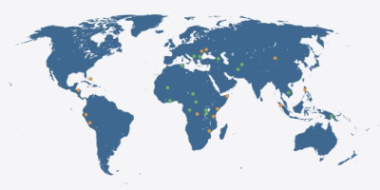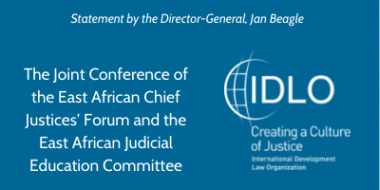Building transparent institutions through e-justice in Kyrgyzstan
IDLO has actively supported a wide range of e-justice initiatives in the Kyrgyz Republic to improve the efficiency, transparency and accountability of the judiciary through digital technologies.


















